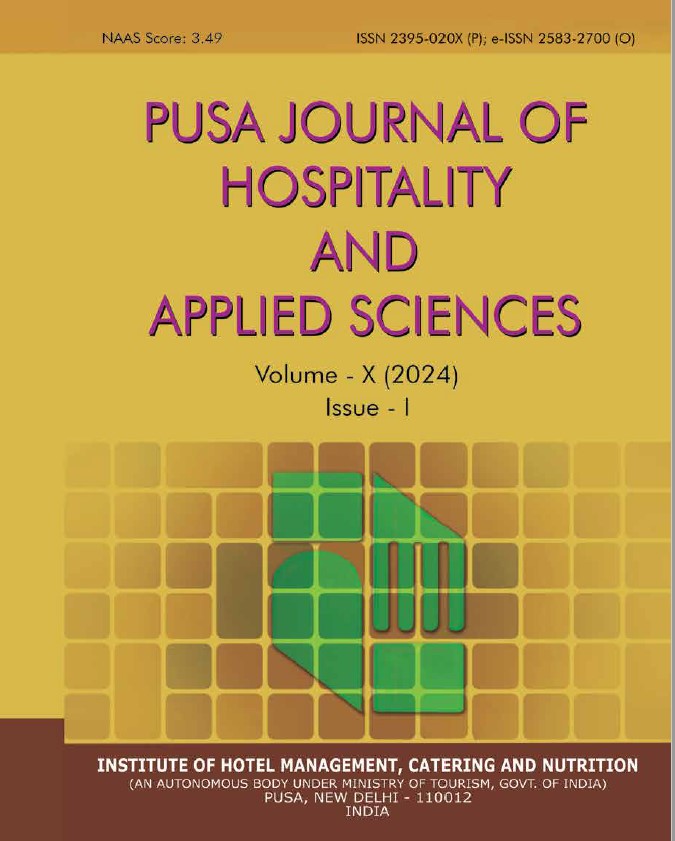Scope Of Yoga Tourism In Chandigarh
Keywords:
Chandigarh, Clean and Green, Yoga, TourismAbstract
Background: Chandigarh is a well planned, clean and green city with various gardens and tourist attractions; still the city beautiful is not able to make its mark in the field of tourism due to higher number of day transits and single night stays. It certainly needs to add other important elements to attract tourists for tourism development. Objective: This paper outlines an analysis of strengths, opportunities and challenges in putting Chandigarh as a destination on the Yoga tourism map of North India. Methodology: The study was conducted on 98 tourists visiting various places in Chandigarh. Data was collected on the basis of the questionnaires filled by the tourists visiting Chandigarh. Results: Tourists admired the beauty of Chandigarh and see a huge scope of Yoga tourism in the city while accepting the fact that it might not be the first preferred city for Yoga in north India. 68% tourists accepted that they would prefer to visit Rishikesh for Yoga as compared to Chandigarh. 98% tourists accepted that cleanliness and greenery in Chandigarh is suitable for practicing Yoga and relaxation. Conclusion: Chandigarh can surely benefit in tourism sector by incorporating Yoga for the citizens and tourists visiting the city. Already available infrastructure allows easy start up of Yoga practices in various gardens and other tourist sites.
References
Aggarwal, A.K. (2008). Spiritual and Yoga Tourism: A case study on experience of Foreign Tourists visiting Rishikesh, India. Conference on Tourism in India – Challenges Ahead, IIMK Part XI – Health, Spiritual and Heritage Tourism.
Birch, B.B. (1995). Power Yoga: The total strength and flexibility workout [Kindle version]. Retrieved from http://www.amazon.in.
Chandigarh Tourism - The Hub of North India. (2018) (2018, January,03). C handigarhtourism. gov.in. Retrieved from http://chandigarhtourism.gov.in/.
Kumar, V. (2017). Prospects and Challenges of Yoga Tourism in India and Abroad. International Journal of Research in Tourism and Hospitality (IJRTH), 3(2), 1-4, ISSN 2455-0043.
Marios D. S. (2013). Electronic word-of-mouth and online reviews in tourism services: the use of twitter by tourists. Electronic Commerce Research. Volume 13, (1),103–124.
Ministry of Tourism Government of India – Report(2016) - Tourism Survey of UT of Chandigarh.
Niko, K. (2012). Wellness: A new mode of Tourism – Economic Research. Ekonomska istraživanja, 25, (2), 532-534.
Pal, J. (2016). Yoga Tourism in India. International Journal of Information Movement Vol I. https://www.researchgate.net/publication/316786734_Yoga_TOURISM_IN_INDIA.
Swachh Survekshan – 2017: Sanitation Rankings of Cities/Towns State/UT-wise – Report (2017). Retrieved from http://pib.nic.in/newsite/PrintRelease.aspx?relid=161527.
Swami, S. (2012). The Yoga Sutras of Patanjali. [Kindle version]. Retrieved from http://www. amazon.in.
UNWTO Tourism Highlights: (2017) World Tourism Organisation. Retrieved from https:// www.e-unwto.org/doi/pdf/10.18111/9789284419029.




